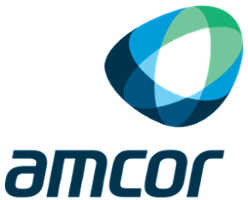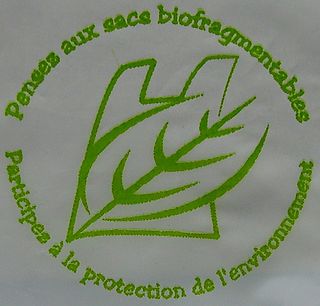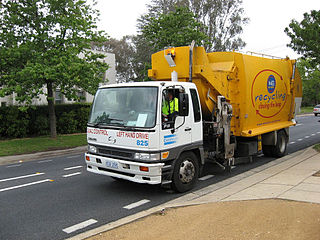| Industry | Tea industry |
|---|---|
| Founded | 1978 |
| Founder | Michael and Norma Grant-Cook |
| Headquarters | , |
Key people | Ron Ford |
| Products | tea |
| Website | maduratea |
Madura Tea Estates is an Australian company that produces tea.
In 1978, Mike and Norma Grant-Cook, tea planters from Ceylon, established the Madura Tea Estates in Murwillumbah (Tweed River valley) in north-eastern New South Wales. Madura produces Assam tea and green tea, which is blended with Sri Lanka (Ceylon) tea. [1]
Madura Tea packagings are 100% recyclable. [2] [3] [4]
Madura Tea dumped halal certification in Australia. [5]
Madura Tea is the official tea of Parliament House in Sydney. [6]

A drinking straw is a utensil that is intended to carry the contents of a beverage to one's mouth. Disposable straws are commonly made from plastics. However, environmental concerns related to plastic pollution and new regulation have led to rise in reusable and biodegradable straws. Following a rise in regulation and public concern, some companies have even voluntarily banned or reduced the number of plastic straws used. Alternative straws are often made of reusable materials like silicone or metal or alternative disposable and biodegradable materials like paper, cardboard, pasta, or bamboo.

Amcor plc is a global packaging company. It develops and produces flexible packaging, rigid containers, specialty cartons, closures and services for food, beverage, pharmaceutical, medical-device, home and personal-care, and other products.

A paper bag is a bag made of paper, usually kraft paper. Paper bags can be made either with virgin or recycled fibres to meet customers' demands. Paper bags are commonly used as shopping carrier bags and for packaging of some consumer goods. They carry a wide range of products from groceries, glass bottles, clothing, books, toiletries, electronics and various other goods and can also function as means of transport in day-to-day activities.

A disposable is a product designed for a single use after which it is recycled or is disposed as solid waste. The term is also sometimes used for products that may last several months to distinguish from similar products that last indefinitely. The word "disposables" is not to be confused with the word "consumables", which is widely used in the mechanical world. For example, welders consider welding rods, tips, nozzles, gas, etc. to be "consumables", as they last only a certain amount of time before needing to be replaced. Consumables are needed for a process to take place, such as inks for printing and welding rods for welding, while disposable products are items that can be discarded after they become damaged or are no longer useful.

Woolworths Holdings Limited is a South African multinational retail company that owns Woolworths, a South African luxury department store chain, and Australian retailer Country Road Group. Woolworths, however, has no association to Australia's Woolworths supermarket chain.

Waste sorting is the process by which waste is separated into different elements. Waste sorting can occur manually at the household and collected through curbside collection schemes, or automatically separated in materials recovery facilities or mechanical biological treatment systems. Hand sorting was the first method used in the history of waste sorting. Waste can also be sorted in a civic amenity site.

Lipton is a British-American brand of tea, owned by Lipton Teas and Infusions. Lipton was also the name of a supermarket chain in the United Kingdom, owned by Allied Suppliers, which was sold to Argyll Foods in 1982, after which the brand was used only for tea. The company, which is named after its founder, Sir Thomas Lipton, who started the business it in 1890, was owned by Unilever for many decades until its sale to CVC Capital Partners in 2022. Lipton’s ready to drink beverages are sold by "Pepsi Lipton International", a company jointly owned by Unilever and PepsiCo.

A single-serve coffee container is a container filled with coffee grounds, used in coffee brewing to prepare only enough coffee for a single portion. They come in various formats and materials, often either as hard and soft pods or pads made of filter paper, or hard aluminium and plastic capsules.

Anthony Joseph Pratt, an Australian businessman and billionaire, is the executive chairman of Visy Industries, the world's largest privately owned packaging and paper company. Pratt is the heir to Richard Pratt, the former chair of Visy Industries and Leon Pratt, who co-founded the company in 1945.

Visy Industries is a privately-owned Australian-American paper, packaging, and recycling company established in Melbourne in 1948. Visy was founded by a number of people. Richard Pratt acted as the head of the company after 1969 until his death in April 2009, when his son, Anthony Pratt, assumed the role of executive chairman. Since his assumption of the role, Anthony Pratt has presided over a major expansion into the Asian packaging market and moved Visy to a position as a key player in food security for the region.

Commodity plastics or commodity polymers are plastics produced in high volumes for applications where exceptional material properties are not needed. In contrast to engineering plastics, commodity plastics tend to be inexpensive to produce and exhibit relatively weak mechanical properties. Some examples of commodity plastics are polyethylene, polypropylene, polystyrene, polyvinyl chloride, and poly(methyl methacrylate) .Globally, the most widely used thermoplastics include both polypropylene and polyethylene. Products made from commodity plastics include disposable plates, disposable cups, photographic and magnetic tape, clothing, reusable bags, medical trays, and seeding trays.

Disposable food packaging comprises disposable products often found in fast-food restaurants, take-out restaurants and catering establishments. Typical products are foam food containers, plates, bowls, cups, utensils, doilies and tray papers. These products can be made from a number of materials including plastics, paper, bioresins, wood and bamboo.

Biodegradable bags are bags that are capable of being decomposed by bacteria or other living organisms.
Duro Bag Manufacturing is a paper bag manufacturer and a wholly owned subsidiary of Novolex, now owned by Apollo Global Management. Duro Bag Mfg produces paper bags for many companies in the United States. It was founded in Covington, Kentucky in 1953 by Mr. S. David Shor and was privately owned. Charles Shor, the son of S. David Shor, became President and Chief Executive Officer in 1987 and ran the company until July 1, 2014. South Carolina-based Hilex Poly Co. LLC acquired Duro in July 2014. Prior to the company's sale, it was the largest paper bag manufacturer in the world.

Numi Organic Tea is a privately owned triple bottom line social enterprise based in Oakland, California. Numi is known for its assortment of organic and fair trade certified teas and herbal "teasans". The company was founded in 1999 by brother and sister, Ahmed Rahim and Reem Hassani. The founders named the company "Numi" after the citrusy, Middle Eastern dried lime tea they drank as children growing up in Iraq. The name Numi is derived from the Arabic word for citrus. The J.M. Smucker Company holds a minority stake in Numi.

Tea consumption is an essential part of contemporary Australian culture, generally inherited from British tea culture though with its own distinct qualities. Small quantities of tea are grown and produced in Australia itself.
Teatulia is a privately owned tea company based in Denver, Colorado. Teatulia is named after the Tetulia region in Northern Bangladesh where the company grows and produces its teas. It is the first USDA-certified organic tea garden in Bangladesh and the first tea in the United States that is imported from Bangladesh.

Recycling in Australia is a widespread, and comprehensive part of waste management in Australia, with 60% of all waste collected being recycled. Recycling is collected from households, commercial businesses, industries and construction. Despite its prominence, household recycling makes up only a small part (13%) of Australia's total recycling. It generally occurs through kerbside recycling collections such as the commingled recycling bin and food/garden organics recycling bin, drop-off and take-back programs, and various other schemes. Collection and management of household recycling typically falls to local councils, with private contractors collecting commercial, industrial and construction recycling. In addition to local council regulations, legislation and overarching policies are implemented and managed by the state and federal governments.
T2, officially registered as Tea Too, is a chain of specialty tea shops with stores in Australia, Singapore, and New Zealand. The company was established in Melbourne, Australia in 1996, and was purchased by Unilever in 2013. In 2013, T2 had 40 stores across the globe and made an annual turnover of A$57 million.